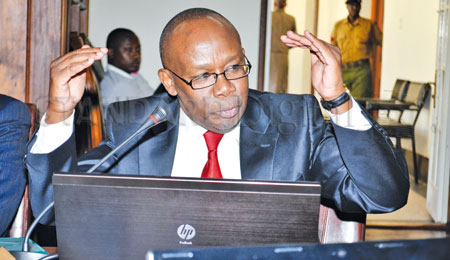×
The Standard e-Paper
Kenya’s Boldest Voice
 |
| Attorney General GithuMuigai makes submission during the hearing of the petition challenging the election of Uhuru Kenyatta as Kenya’s fourth president. [PHOTO: EVANS HABIL/STANDARD] |
By Ally Jamah